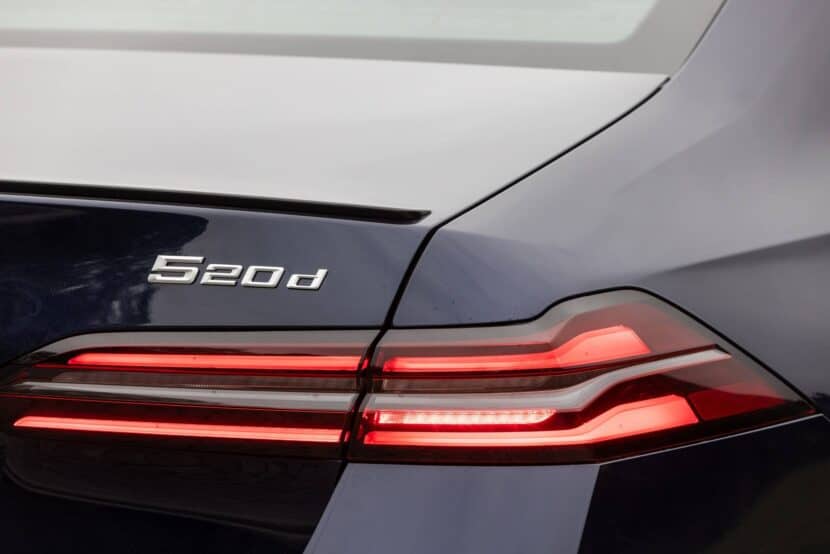The diesel engine is past its prime as stricter emissions regulations are forcing automakers to gradually drop oil-burners. BMW has already given up on selling the M50d models with their quad-turbo inline-six diesels and we’re hearing the M340d won’t live to see another generation. That said, you can still get a diesel engine in most of the automaker’s models, including the new 5 Series.
Codenamed G60, the eighth iteration of the luxury sedan is currently offered with a diesel engine only as a 520d with or without xDrive. Later this year, BMW will add a more potent 540d featuring an inline-six engine and standard all-wheel drive. But how does the base 520d behave when being pushed to the maximum? This video shot on the Autobahn attempts to answer the question.
The 520d is arguably the most boring variant of the 5 Series money can buy but it does excel in one regard – fuel consumption. BMW says it sips anywhere between 5.1 to 5.6 liters for every 62 miles (100 kilometers) it covers in the WLTP cycle, which is remarkable given the heft of the car. As a reminder, the new 5er is a massive vehicle, measuring just over five meters long and tipping the scales at 1,775 kg (3,913 lbs) for this 520d.
Of course, you won’t be taking down any Nürburgring records for a sedan with the BMW 520d. Its 2.0-liter, four-cylinder engine punches out nearly 200 hp and 400 Nm (295 lb-ft) of torque. This video shot on the German highway puts those numbers to the test in a full-throttle acceleration. It runs out of puff after 124 mph (200 km/h) but eventually gets up to 140 mph (225 km/h). Since we mentioned fuel consumption earlier, the car drinks roughly 15 liters / 100 km at those speeds, which isn’t too shabby all things considered.
Many automakers – including BMW – want to make plug-in hybrids the new diesel by combining a gasoline engine with an electric motor to deliver diesel-like efficiency without any tradeoffs. The instant torque of the e-motor delivers the low-end grunt you’d expect from a diesel. However, to maximize how frugal a PHEV can be, the battery pack must be charged to prolong the electric range. Running a PHEV with the battery depleted defeats the purpose of having a plug-in hybrid in the first place since you’re just carrying around that extra weight.
Source: TEST DRIVE FREAK / YouTube

